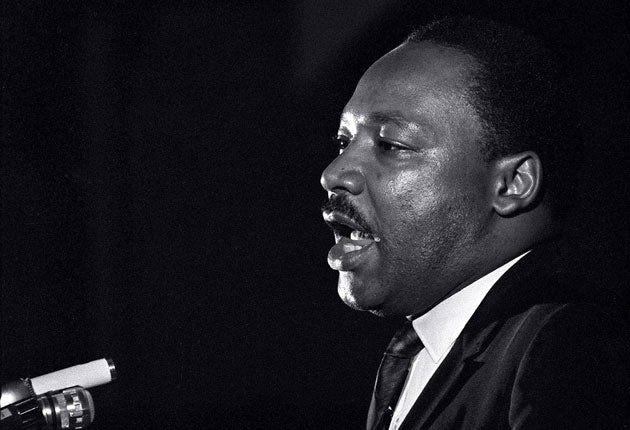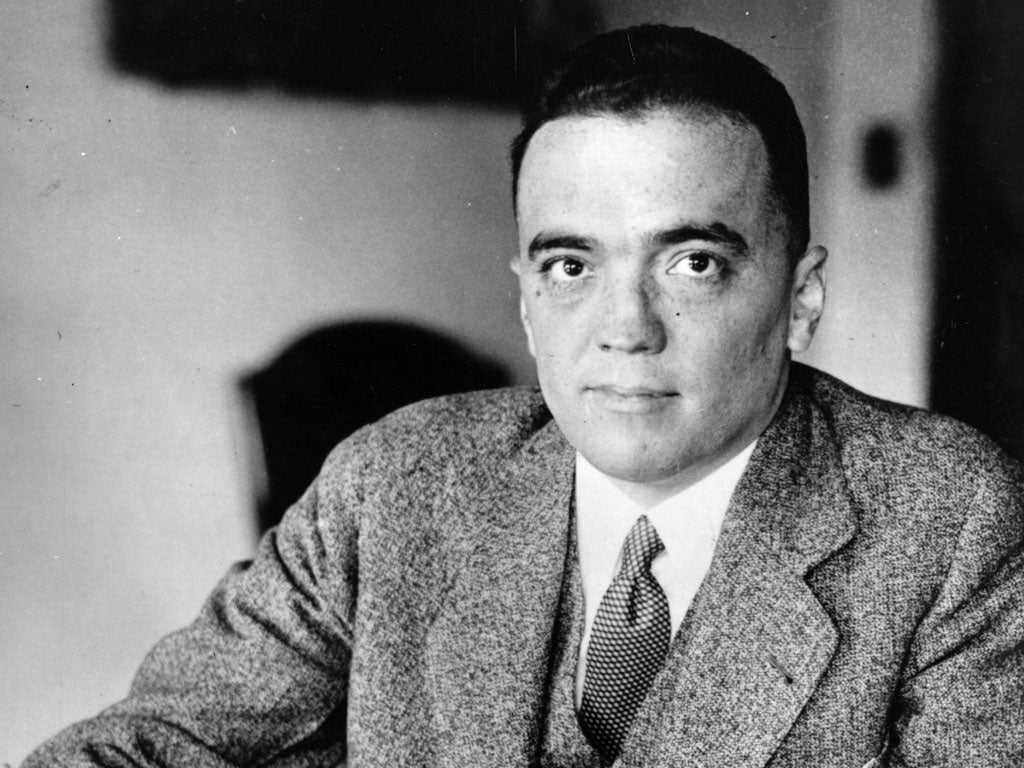The Independent's journalism is supported by our readers. When you purchase through links on our site, we may earn commission.
'There is but one way out for you': Uncensored 'suicide letter' sent from FBI to Martin Luther King made public for the first time
Unredacted version of letter has been discovered in the National Archive by Yale University historian Beverly Gage

Your support helps us to tell the story
From reproductive rights to climate change to Big Tech, The Independent is on the ground when the story is developing. Whether it's investigating the financials of Elon Musk's pro-Trump PAC or producing our latest documentary, 'The A Word', which shines a light on the American women fighting for reproductive rights, we know how important it is to parse out the facts from the messaging.
At such a critical moment in US history, we need reporters on the ground. Your donation allows us to keep sending journalists to speak to both sides of the story.
The Independent is trusted by Americans across the entire political spectrum. And unlike many other quality news outlets, we choose not to lock Americans out of our reporting and analysis with paywalls. We believe quality journalism should be available to everyone, paid for by those who can afford it.
Your support makes all the difference.The uncensored contents of a letter sent from the FBI to Martin Luther King in which he is called an "evil, abnormal beast" and apparently encouraged to kill himself have been made public for the first time.
In what appears to be a heavy-handed attempt to unsettle the civil rights leader, the anonymous letter was written by a deputy of the bureau's director J Edgar Hoover, posing as a disappointed activist, and sent to King in the weeks before he received the Nobel Peace Prize in 1964.
While the existence of the document, dubbed the "suicide letter", has been known for some time, only heavily redacted versions had previously been available.
It has now been published in full in The New York Times Magazine after an unredacted version was discovered in the National Archive by Yale University historian Beverly Gage, as she researched a book on Hoover.

It shows the FBI director was apparently willing to use King's extra-marital affairs in an attempt to disconcert the pastor.
Writing in The New York Times, Ms Gage describes how: "The largest unredacted section focuses on King's sex life, recounting in graphic language what the bureau believed it knew."
Littered with apparently deliberate typos and mistakes, the letter warns King: "There is but one way out for you. You better take it before your filthy, abnormal fraudalant [sic] self is bared to the nation.”
At the time King and his associates suspected the letter had come from the FBI, a belief that was confirmed a decade later by the Senate’s Church Committee on intelligence overreach.
The FBI's attempt to keep tabs and discredit King, who was assassinated in 1968, has been reported to have come under the umbrella of the Cointelpro programme.
Launched in the 1950s, the programme was initially intended to trail and, if possible, discredit members of the Communist Party.
Through the 1960s however it shifted its focus to civil rights activists.
In September last year, historical archives released to researchers at George Washington University showed the National Security Agency (NSA), under a programme dubbed 'Minaret', was monitoring the overseas phone calls and cables of a number of figures of note including King and heavyweight boxing champion Muhammad Ali.
The documents, discussed by the researchers Matthew Aid and William Burr in an article in Foreign Policy, relate to a period from 1967 to 1973, a time when it appears paranoia about foreign governments allegedly stoking the anti-Vietnam War movement was rife.
The NSA was forced to release the papers to researchers at the university’s National Security Archive following an appeal to the Security Classification Appeals Panel.
Join our commenting forum
Join thought-provoking conversations, follow other Independent readers and see their replies
Comments